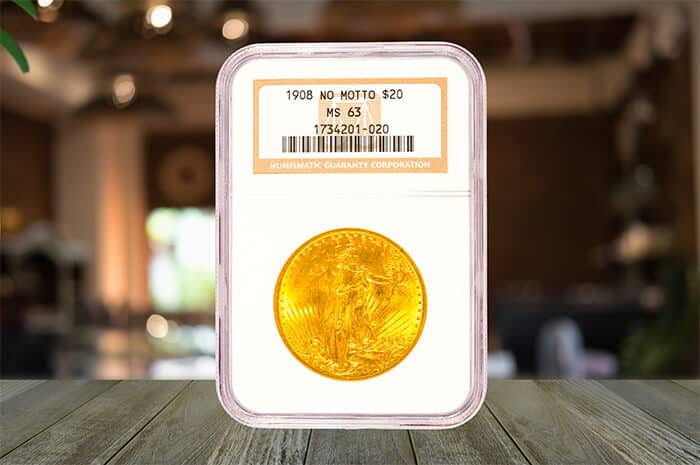Navigating the World of Collectible Coins: Tips for Beginners

Coin collecting, also known as numismatics, is an exciting and rewarding hobby that allows enthusiasts to explore history, art, and finance all in one. Whether you’re fascinated by rare coins, bullion investments, or the stories behind historical currency, getting started can feel overwhelming. At Tyler Gold & Bullion in Tyler, TX, we’re here to guide you through the basics of collecting coins, helping you make informed decisions that enhance both your passion and investment.
Finding Your Focus: What Interests You?
Before diving into coin collecting, take a moment to determine what excites you most about the hobby. Collectors often specialize in one or more areas, such as:
- Historical Coins: Coins from ancient civilizations, colonial America, or specific historical periods.
- Bullion Coins: Gold and silver coins that hold intrinsic metal value, like American Eagles or Canadian Maple Leafs.
- Commemorative Coins: Special edition coins issued to mark significant events or anniversaries.
- Error Coins: Coins with minting mistakes that make them rare and valuable.
- Foreign Coins: Collecting currency from different countries for cultural and artistic appreciation.
Choosing a niche will help you refine your search, focus your research, and build a collection that is both meaningful and valuable.
Understanding Coin Grading and Value
The condition of a coin significantly affects its value. The Sheldon Coin Grading Scale, ranging from Poor (P-1) to Mint State (MS-70), helps collectors assess a coin’s condition. Here are key grading terms to know:
- Good (G-4 to G-6): Heavy wear, but design details are still visible.
- Fine (F-12 to F-15): Moderate wear with clear lettering.
- Very Fine (VF-20 to VF-35): Light wear with strong details.
- Extremely Fine (EF-40 to EF-45): Slight wear, high points of design still sharp.
- Uncirculated (MS-60 to MS-70): No wear, may have minor imperfections.
Professional grading services like PCGS (Professional Coin Grading Service) and NGC (Numismatic Guaranty Corporation) provide authenticated grading, ensuring valuation accuracy.
Where to Find Collectible Coins
Once you’ve decided what to collect, the next step is finding reputable sources to purchase coins. Here are some common places to look:
- Local Coin Shops: Businesses like Tyler Gold & Bullion provide expert evaluations and a diverse selection of coins.
- Coin Shows & Auctions: Great opportunities to find rare pieces and connect with experienced collectors.
- Online Marketplaces: Websites like eBay or Heritage Auctions offer a vast selection but require careful research to avoid counterfeit coins.
- Banks & Mints: Some national mints sell commemorative and bullion coins directly.
Always verify the credibility of a seller before making purchases to ensure authenticity and fair pricing.
Essential Tips for Buying Coins
- Do Your Research: Before purchasing, read about the coin’s history, rarity, and value.
- Verify Authenticity: Always buy from reputable dealers who offer grading certification.
- Inspect the Coin: Look for signs of wear, discoloration, and edge details.
- Compare Prices: Check market prices using resources like the Coin Dealer Newsletter (CDN) or online pricing guides.
- Start Small: As a beginner, avoid high-risk investments until you gain experience.
Caring for Your Coin Collection
Proper storage and handling are crucial to preserving a coin’s condition and value. Follow these guidelines:
- Handle Coins Carefully: Always hold coins by the edges to avoid fingerprints and smudges.
- Use Protective Cases: Store coins in acid-free holders, plastic flips, or airtight capsules.
- Avoid Cleaning Coins: Cleaning can cause irreversible damage. Let professionals handle restoration if necessary.
- Maintain Stable Storage Conditions: Keep your collection in a dry, temperature-controlled environment to prevent tarnishing.
When and How to Sell Coins
If you decide to sell part of your collection, knowing when and where to sell is essential for maximizing returns. Consider these factors:
- Market Trends: Gold and silver prices fluctuate, so monitor the market to sell at peak value.
- Professional Appraisals: Get your coins appraised by experts like those at Tyler Gold & Bullion to understand their true worth.
- Selling Options: Sell through coin shops, auctions, or online platforms, depending on the rarity and demand for your coins.
- Proper Documentation: Maintain receipts, certificates, and grading reports to validate authenticity.
Building a Strong Coin-Collecting Network
Joining a community of collectors can enhance your knowledge and experience. Consider:
- Attending Coin Shows: Meet experts, view rare coins, and expand your collection.
- Joining Numismatic Clubs: Organizations like the American Numismatic Association (ANA) provide valuable resources and networking opportunities.
- Engaging in Online Forums: Websites like CoinTalk and Reddit’s r/coins offer discussions, trade opportunities, and expert advice.
Why Coin Collecting is More Than Just a Hobby
Beyond investment potential, coin collecting offers historical insight, educational benefits, and a tangible connection to different eras and cultures. Whether you collect for fun, financial security, or the love of history, numismatics is a rewarding pursuit with endless learning opportunities.
At Tyler Gold & Bullion, we’re passionate about coins and helping collectors at every stage of their journey. Visit us in Tyler, TX, or call 903-522-4149 to explore our selection, get expert evaluations, or discuss your numismatic interests. Let us help you make informed decisions and build a collection that lasts a lifetime!
